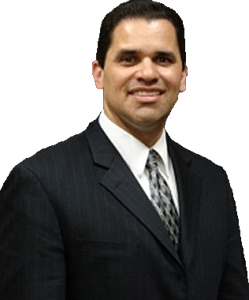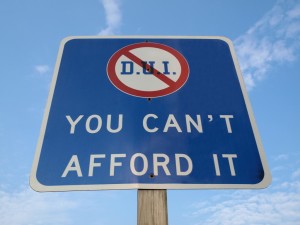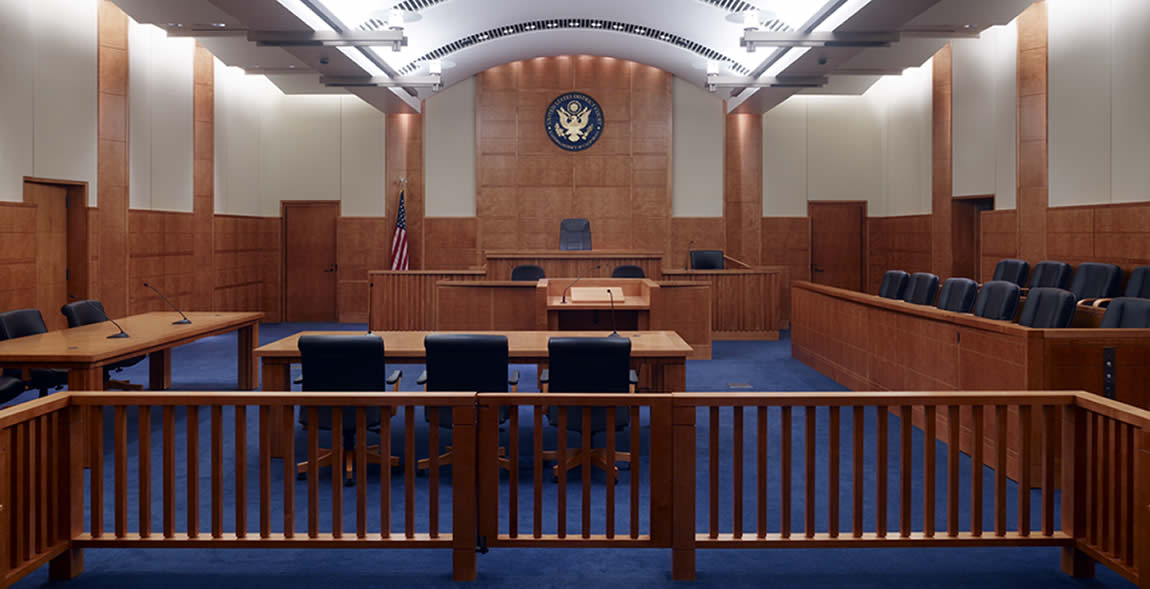 Se Habla Espanol
Se Habla Espanol

 What can get me pulled over for a potential DUI investigation? (DUI Attorney Fresno, Ca) Any vehicle stop can lead to a DUI investigation if the officer smells alcohol when he contacts the person he/she pulls over. We have had cases in which a person was pulled over for speeding, for not having a front license plate, for an inoperative license plate light, for having a trailer-hitch ball partially obstructing the license plate, expired registration, failing to use a turn-signal when changing lanes, exiting the freeway, or making a turn, and more. It is not just the classic “weaving” that leads to a DUI investigation. Any vehicle code violation can result in an investigation. In addition, at random times during the year (but usually around holidays) the police conduct DUI sobriety checkpoints where no vehicle code violation What if I was involved in an accident? (DUI Attorney Fresno, Ca) Simply causing an accident is usually enough to merit higher penalties. However, if you leave the scene of an accident you will also be charged with a “hit and run”, which entails even harsher penalties. If someone is injured as a result of the accident, you can be charged with “DUI with injury”, which can be charged as a felony, and if convicted results in a one-year license suspension. Under a recent law passed, if you kill a person while driving under the influence you can be charged with murder. Is a DUI a felony or a misdemeanor? (DUI Attorney Fresno, Ca) The majority of DUI cases are charged as misdemeanors. Even a high blood alcohol content does not result in the case being filed as a felony. However, if someone is hurt or killed then the case will likely be charged as a felony. Additionally, if you have a prior felony DUI conviction the current case will likely be charged as a felony. What if no one observed me driving? (DUI Attorney Fresno, Ca) There is a California law on the books (Vehicle Code §40300.5) that purports to allow law enforcement to arrest someone for a DUI if they have been in an accident or are obstructing a roadway. However, a recent federal case out of the 9th Circuit (Hopkins v. Bonvicino) reiterated the fact that it is the federal, not state courts that interpret the law. It has long been held at common law, and the U.S. Supreme Court recently reaffirmed this in Atwater v. City of Lago Vista, that law enforcement may only arrest a person for a misdemeanor committed in their presence if they do not have a warrant. While no court has held that VC §40300.5 is unconstitutional the issue is now being argued and litigated. For now, state courts and the DMV typically uphold an arrest made on the basis of VC §40300.5. What should I tell law enforcement when they ask if I have been drinking? (DUI Attorney Fresno, Ca) The best course of action is to exercise your right to remain silent and politely decline to answer the question. If a law enforcement officer asks this question most likely they already smell the odor of an alcoholic beverage in the car or on your breath. As such, the worst thing you can do is deny drinking as this will undercut your credibility later on in court or at the DMV hearing. What does law enforcement look for when looking for possible DUI drivers? (DUI Attorney Fresno, Ca) The National Highway Traffic Safety Administration (NHTSA), part of the Department of Transportation, has produced a guide for law enforcement on what driving patterns may indicate a possible DUI driver. The driving patterns are listed in descending order of probability:
What can get me pulled over for a potential DUI investigation? (DUI Attorney Fresno, Ca) Any vehicle stop can lead to a DUI investigation if the officer smells alcohol when he contacts the person he/she pulls over. We have had cases in which a person was pulled over for speeding, for not having a front license plate, for an inoperative license plate light, for having a trailer-hitch ball partially obstructing the license plate, expired registration, failing to use a turn-signal when changing lanes, exiting the freeway, or making a turn, and more. It is not just the classic “weaving” that leads to a DUI investigation. Any vehicle code violation can result in an investigation. In addition, at random times during the year (but usually around holidays) the police conduct DUI sobriety checkpoints where no vehicle code violation What if I was involved in an accident? (DUI Attorney Fresno, Ca) Simply causing an accident is usually enough to merit higher penalties. However, if you leave the scene of an accident you will also be charged with a “hit and run”, which entails even harsher penalties. If someone is injured as a result of the accident, you can be charged with “DUI with injury”, which can be charged as a felony, and if convicted results in a one-year license suspension. Under a recent law passed, if you kill a person while driving under the influence you can be charged with murder. Is a DUI a felony or a misdemeanor? (DUI Attorney Fresno, Ca) The majority of DUI cases are charged as misdemeanors. Even a high blood alcohol content does not result in the case being filed as a felony. However, if someone is hurt or killed then the case will likely be charged as a felony. Additionally, if you have a prior felony DUI conviction the current case will likely be charged as a felony. What if no one observed me driving? (DUI Attorney Fresno, Ca) There is a California law on the books (Vehicle Code §40300.5) that purports to allow law enforcement to arrest someone for a DUI if they have been in an accident or are obstructing a roadway. However, a recent federal case out of the 9th Circuit (Hopkins v. Bonvicino) reiterated the fact that it is the federal, not state courts that interpret the law. It has long been held at common law, and the U.S. Supreme Court recently reaffirmed this in Atwater v. City of Lago Vista, that law enforcement may only arrest a person for a misdemeanor committed in their presence if they do not have a warrant. While no court has held that VC §40300.5 is unconstitutional the issue is now being argued and litigated. For now, state courts and the DMV typically uphold an arrest made on the basis of VC §40300.5. What should I tell law enforcement when they ask if I have been drinking? (DUI Attorney Fresno, Ca) The best course of action is to exercise your right to remain silent and politely decline to answer the question. If a law enforcement officer asks this question most likely they already smell the odor of an alcoholic beverage in the car or on your breath. As such, the worst thing you can do is deny drinking as this will undercut your credibility later on in court or at the DMV hearing. What does law enforcement look for when looking for possible DUI drivers? (DUI Attorney Fresno, Ca) The National Highway Traffic Safety Administration (NHTSA), part of the Department of Transportation, has produced a guide for law enforcement on what driving patterns may indicate a possible DUI driver. The driving patterns are listed in descending order of probability:
- Turning with a wide radius (65%)
- Straddling center of lane marker (65%)
- Appearing to be drunk, based upon posture, gestures, etc. (60%)
- Almost striking object or vehicle (60%)
- Weaving (60%)
- Driving on other than designated roadway (55%)
- Swerving (55%)
- Speed (either too fast or too slow) (55%)
- Stopping for no reason in a traffic lane (55%)
- Following another car too closely (50%)
- Drifting (50%)
- Tires on center or lane marker (45%)
- Braking erratically (45%)
- Driving into opposing lane or crossing traffic (45%)
- Signaling inconsistent with driving actions (45%)
- Slow response to traffic signals (40%)
- Stopping inappropriately (35%)
- Turning abruptly or illegally (30%)
- Accelerating or decelerating rapidly (30%)
- Driving with headlights off during darkness (30%)
What does law enforcement look for after I am stopped? (DUI Attorney Fresno, Ca) The following “objective” symptoms of intoxication are so common that they are pre-printed on the form that law enforcement personnel submit to the DMV: Bloodshot/Watery eyes; Odor of alcoholic beverage; Unsteady gait; and Slurred speech. Officers typically check all these boxes out of habit even if they are not actually present.

